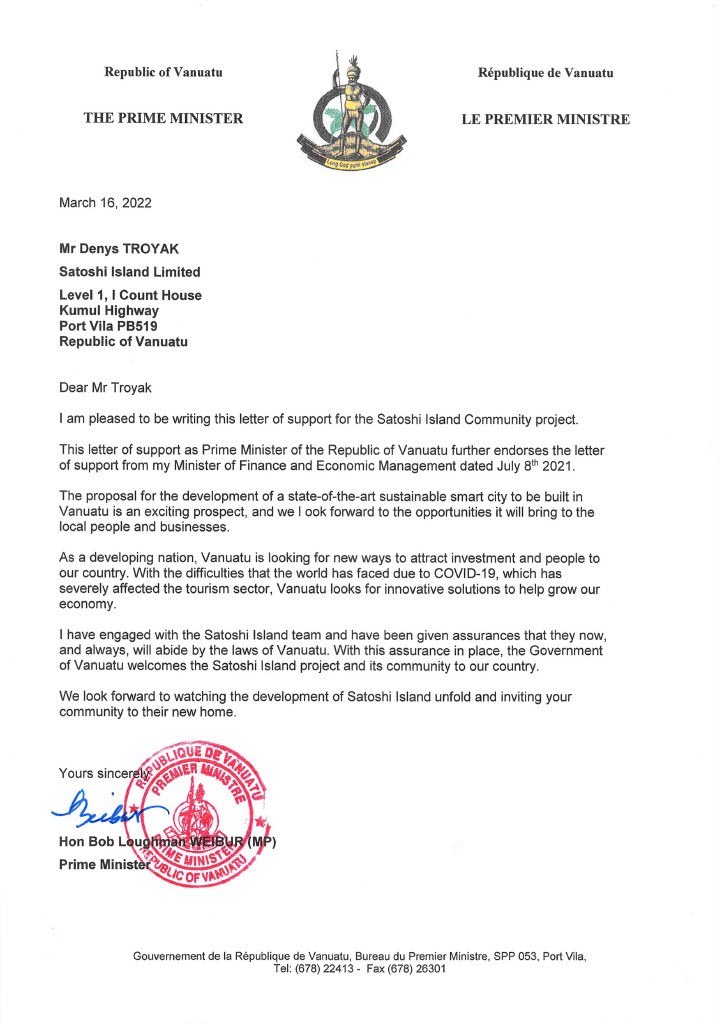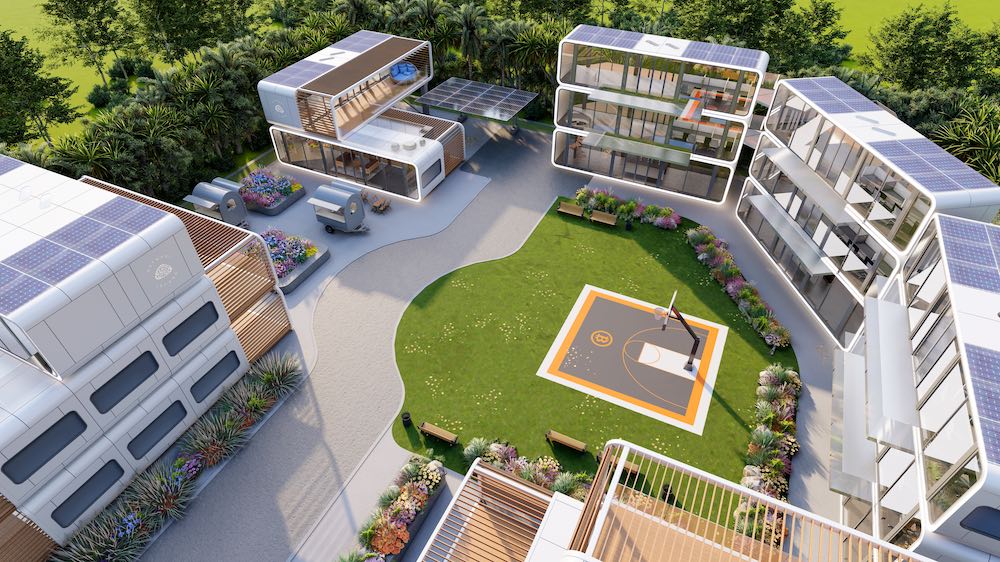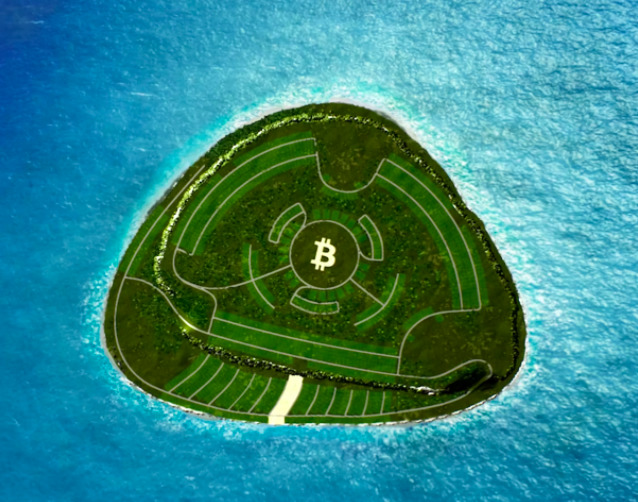Ambitious ‘Satoshi Island’ crypto project gets the nod from Vanuatu’s PM

Pic: metamorworks / iStock / Getty Images Plus via Getty Images
Welcome… to Fantas… er, Satoshi Island. It’s a project aiming to turn a tropical South Pacific isle into the “crypto capital of the world”, and it’s just secured approval from the prime minister of Vanuatu.
In an official statement from the archipelago nation, Prime Minister Bob Loughman endorsed the approval his Finance Ministry first gave to build on the island late last year.
This now puts him in a similar crypto-championing league as El Salvador’s Bitcoin-loving leader. (President Nayib Bukele famously made the orange coin legal tender in El Salvador last September, has plans for a Volcano-powered Bitcoin City, and is even planning to offer citizenship to foreign investors.)
Loughman’s letter of approval describes the project as “an exciting prospect” and states that his government looks forward to the “opportunities it will bring to the local people and businesses”. The PM also emphasised that Vanuatu is looking for “innovative solutions” to help grow its economy.

We are excited to announce that we have received an official endorsement from the Prime Minister of Vanuatu, cementing the government’s support for the project and inviting our community to their new home! 🥳🏝️ #NFTs #crypto #satoshiisland
Learn more 👇https://t.co/fBoLt283xt
— Satoshi Island (@satoshiisland) March 25, 2022
What is Satoshi Island?
Like dollars and cents? You’re not welcome on Satoshi Island. Well, you probably still are, but your trad money might not exactly burn a hole in your pocket in crypto paradise, as its economy (and blockchain-based democracy) is designed to run on nothing but Bitcoin (BTC) and other digital assets.
The island is named after Bitcoin’s pseudonymous creator Satoshi Nakamoto and is one of the 83 or so that make up Vanuatu. It’s roughly 32 million square feet (about 437 rugby league fields) of privately owned tropical land belonging to Satoshi Island Limited.
Watch our video & see how we're turning a dream into reality!
Yes, we already own the island
Yes, we can develop as advertised
Yes, the government supports our plan
Yes, our team has relevant expertise🏝️#satoshiisland a home for crypto enthusiasts & professionals worldwide! pic.twitter.com/1O05kmfrN1
— Satoshi Island (@satoshiisland) January 27, 2022
The project, in its embryonic stages of development, has engaged the services of Hong Kong architects James Law Cybertecture to help realise the vision, planning and development of the island.
The “modules”, as shown on the project’s website, are designed to be sustainable, solar-powered “smart building” units that can be combined and placed into hundreds of different positions. The planning illustrations show a somewhat futuristic-looking vision for the development (see below).
“Modular development is the future of city building, instead of decades they will be completed within a few short years,” reads a statement from architect James Law.

The project’s economy is planned to run solely on Bitcoin and altcoin transactions, as mentioned, and access to the island will be enabled by holding an official Satoshi Island Citizenship NFT (although a regular passport will still be required for entry in and out of Vanuatu as per normal).
Have you heard about the free Citizenship NFT that we are giving away?
— Satoshi Island (@satoshiisland) March 25, 2022
Besides the island’s citizenship NFT airdrop, which is meant to be happening this quarter, the project’s roadmap details a series of Land “mints” offered in phases, representing different locations on the island.
Owners of Land NFTs will be able to begin buying modules and designing their homes and apartment complexes in the second half of 2022. Module prices will apparently begin at about US$60k. About AUD $650k cheaper than a Sydney one-bedroom flat, then.

The actual construction of the modules won’t begin till later in the year, but the island will apparently be opened for temporary visitation by Citizenship NFT holders in the fourth quarter.
According to a Cointelegraph article dated March 23, the Satoshi Island project has already received at least 50,000 applications for its Citizenship NFTs, of which only 21,000 will be granted.
Related Topics
SUBSCRIBE
Get the latest breaking news and stocks straight to your inbox.
It's free. Unsubscribe whenever you want.
By proceeding, you confirm you understand that we handle personal information in accordance with our Privacy Policy.








